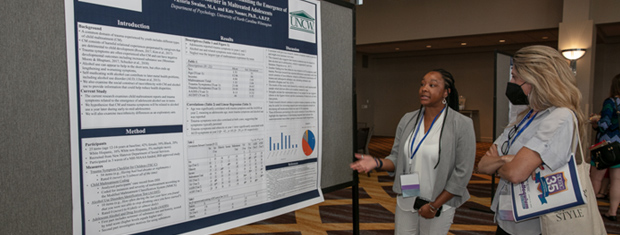




The APSAC Advisor is a peer reviewed quarterly news journal for professionals in the field of child abuse and neglect.
The APSAC Advisor provides succinct, data-based, practice-oriented articles that keep interdisciplinary professionals
informed of the latest developments in policy and practice the field of child maltreatment. It is designed to highlight
best practices in the field and publish original articles and current information about child maltreatment for professionals
from a variety of backgrounds including medicine, law, law enforcement, social work, child protective services, psychology,
public health and prevention in the U.S.
 If you wish to learn more about submitting an article to the Advisor, please click here.
If you wish to learn more about submitting an article to the Advisor, please click here.
This library contains Advisor issues dating back to the first issue in 1988. The most recent issue appears at the top.
Scroll down to select past issues by year and issue number. Once a publication appears in the box, you
can use the Enlarge button to open the document in a new window or tab (depending on how your browser is set up).
This will allow you to view the document with larger print.
To print a document, first use the Enlarge button to open the document in a new window or tab. Then use your browser's Print command.
To return here from a new tab, close the tab. To return from a new window, click your browser's Back button.
In the listing below, click on a year and issue number to see the articles in that publication.
2008 Number 3 and 4
The Supreme Court, Hearsay, and Crawford: Implications for Child Interviewers
The purpose of this article is to explain the implications of Crawford for child interviewing. The bottom line is that interviewers should remain committed to best practice; that is, they should continue to pursue approaches that increase the accuracy and completeness of children’s reports.
When Qualified Immunity Protects Social Workers From 42 U.S.C. 1983 Lawsuits
Social work has developed into an increasingly seasoned, mature, and specialized profession. The role of social workers has also changed, resulting in an increased expectation that social workers will be aware of and will satisfy legal responsibilities owed to their clients. While many public sector social work administrators and practitioners are concerned about liability litigation, no national studies of appellate cases have been synthesized to illustrate when suits against social workers succeed, and when social workers can rely on the doctrine of qualified immunity. This article explores when social workers are and are not successful in asserting qualified immunity when sued in civil court under 42 U.S.C. §1983.
Child Welfare Class Action Litigation: A Framework for Assessing Its Effectiveness in System Reform
In 1973, Marcia Robinson Lowry launched, for the first time, a class action lawsuit against a public child welfare system, suing the New York City foster care system in Wilder v. Sugarman. In the case, Lowry asserted that New York City’s practice of placing children in foster care with private agencies on the basis of religious affiliation harmed children and violated their federal constitutional rights (Bernstein, 2001).
Recent law school graduate Marcia Lowry was working at a legal services office in New York City when the staff instructed the group of new lawyers to pick a legal specialty. Lowry chose children’s issues because she thought it seemed the most interesting. Decades later, she has represented hundreds of thousands of children through child welfare litigation.
Be Prepared, Be Proactive, and Be Professional: Key Points to Testifying in Child Abuse Cases
The key to being a great expert witness is summed up in the adage “Proper Prior Planning Prevents Poor Performance” (Tracy, 2007). In addition to always being prepared, a great expert witness must also be Proactive and Professional.
The purpose of Journal Highlights is to alert readers to current literature on child abuse. Selected articles from journals representing the variety of disciplines reflected in APSAC's membership are presented in the form of an annotated bibliography.
This article presents a snapshot of the career and contributions of John E. B. Myers�"widely published author, educator, legal consultant, trainer, and one of the foremost international experts in child maltreatment law.
APSAC Advisor 20(3-4): Full issue